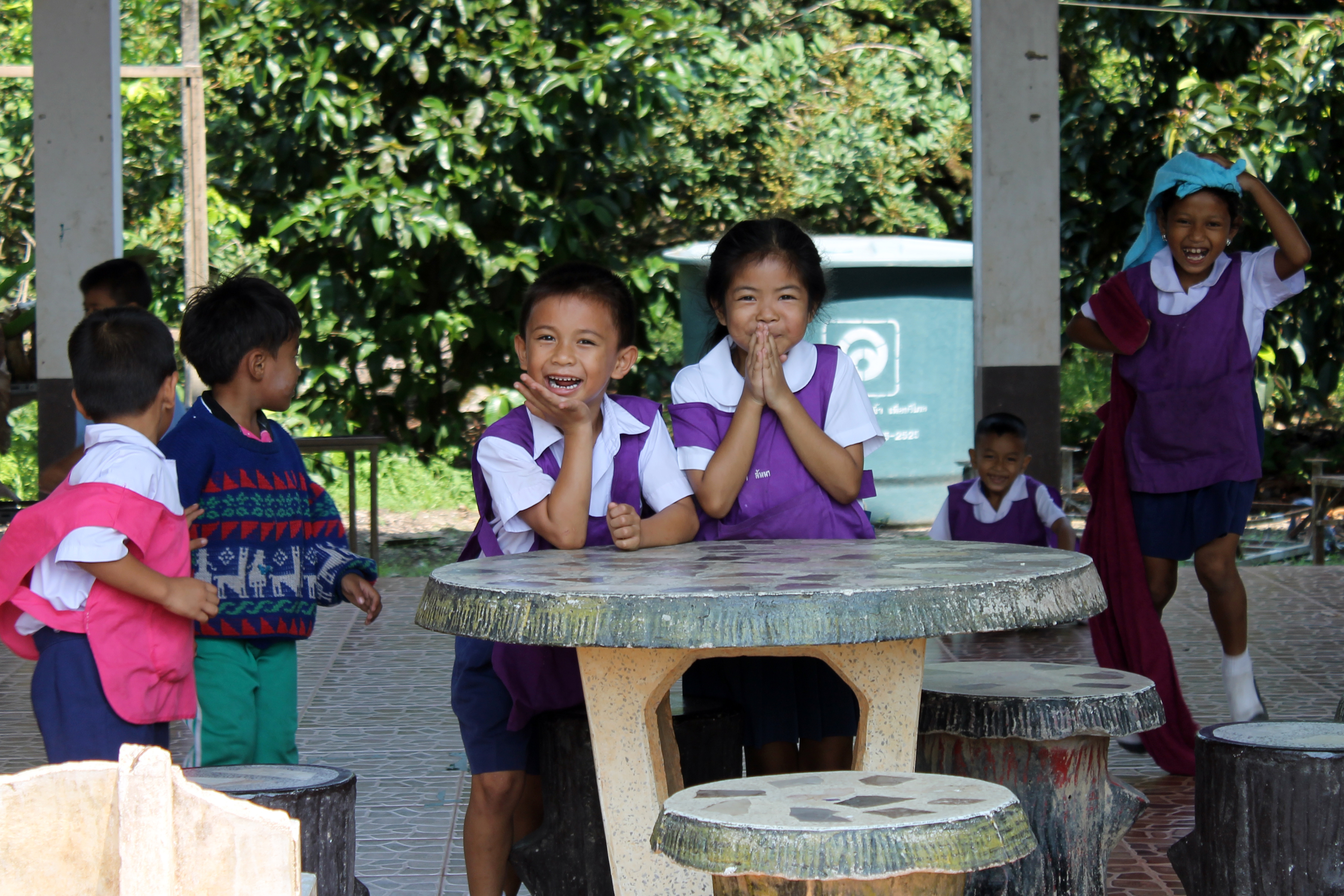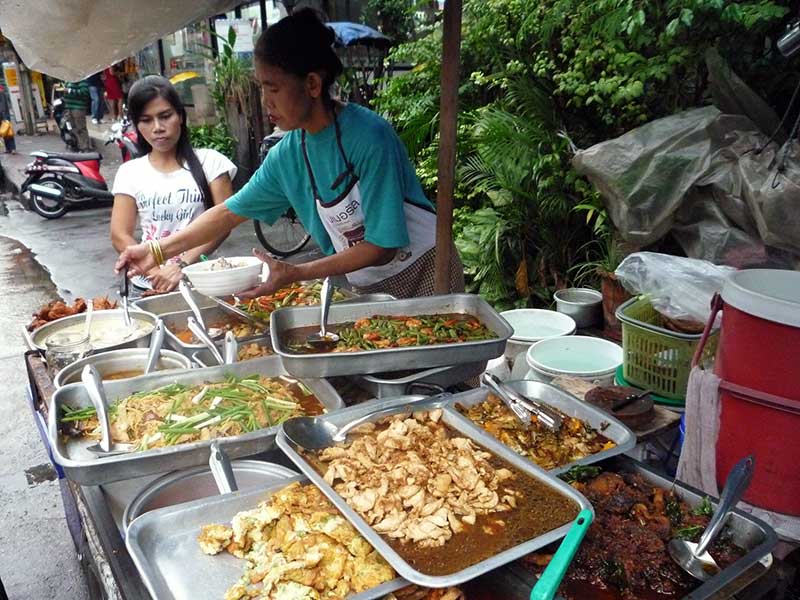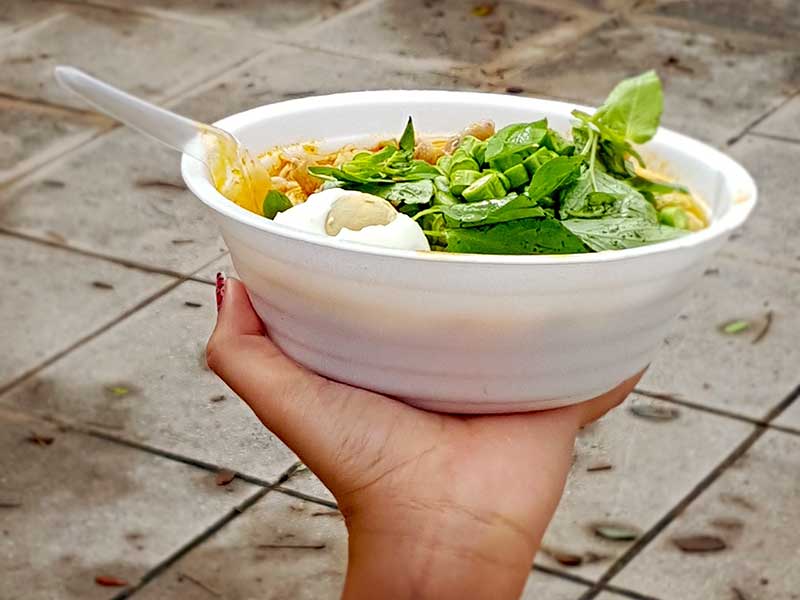Thailand is such a popular tourist destination that most locals know how to speak a bit of English. But no matter where you go, knowing how to say basic phrases like “hello” and “thank you” will go along way if you want to communicate quickly and make friends. Locals love hearing farangs (tourists) try to speak their language, and surprising them with a few Thai words will always elicit a smile.

When you volunteer in Thailand, you’ll be based in rural Trat, where most of the children you'll be working with don’t speak English fluently. That means you’ll need to get creative in order to communicate - whether you’re teaching sports in Thailand or volunteering in community education.
Your volunteer orientation will include basic vocabulary lessons to teach you the relevant words you need to know when leading your classes. However, why not get a head start by practicing these essential phrases before you arrive?
Basic phrases to volunteer in Thailand
1. Ka and krup
Respect is a huge part of Thai culture, and the more you can play along, the easier it will be to fit in. Thais typically add the word ka or krup to the end of sentences as a sign of politeness. Which one you use depends on your gender — if you’re a woman, you’ll say ka and if you’re a man, you use krup. Don’t worry, we’ll give you an example in a minute.

2. Sa-wat-dee (Hello)
An essential in any language. This will be your go-to greeting when you enter your classroom, greet your fellow teachers each day or when you enter a restaurant. Of course, to be polite you’ll add ka or krup to the end of the sentence, depending on your gender. So a girl would say “Sawatdee ka.” You can also use this word to say good morning, good evening and goodbye.
Tip: For extra points, you can do a wai (bow) while saying hello. There are a few different types of bows for different occasions, but as a foreigner you’re not expected to be familiar with them all. Simply put your hands together in a prayer position in front of your chest and lower your forehead until it touches your thumb.
3. Sabai dee mai (How are you?)
If you want to ask someone how they’re doing, just say “Sabai dee mai ka/ krup?” If someone asks you, you can respond by saying “Sabai dee ka/ krup,” which means “I’m fine, thank you.”

3. Kob khun (Thank you)
Next to hello and how are you?, this might be one of the most important words you need to know. Whenever someone hands you anything, like your order at a street stall, say kob khun with a smile. If you say this with a wai, you’re already winning!
4. Kor toht (Excuse me)
This one will come in handy while navigating large crowds at the street market or when getting off of a bus, for example.

5. Phet (Spicy)
If you’re not a big fan of spicy food, then you’ll definitely need to know this word. Otherwise you may end up struggling through a meal because Thais love their food HOT! If you don’t want your food spicy at all, simply say mai phet (pronounced pet.) Or if you just want a little bit of spice, you can say phet nit nawy.
Tip: If you’re really brave, you can ask for your food to be made phet mak (really spicy.)
6. Aroy (Delicious)
Whenever you go out for lunch with your fellow volunteers or coworkers, you can impress locals by saying aroy after you finish eating. It’s a nice way to express your thanks for an awesome meal from a restaurant, vendor or even the cook at the volunteer dorm. A good time to say this is when paying at the end of the meal at a sit-down restaurant or street stall.

7. Mai pen rai (No problem)
When you volunteer in Thailand, remember that nothing is ever a big deal. Bus breaks down on your way to the school? No problem, just say mai pen rai with a shrug. Someone shows up late? Mai pen rai. It’s kind of like saying “Oh well” or “don’t worry about it.”
Tip: Thais do not like to make a fuss over problems because they don’t like to lose face. Do the same and you’ll get along well with everyone.

A few more tips
Practice, practice, practice.
Reading the words on a screen is one thing, but nothing beats hearing and actually speaking the language. You can start practicing before you arrive by watching YouTube videos and repeating the words. When you volunteer in Thailand, we’ll also give you free Thai lessons so you get to practice some more.
Speak with locals.
The best way to learn a language is by speaking with locals. Whether it’s the people you work with or people from the local community, the more time you spend time with Thais, the quicker you’ll pick it up. Our local volunteer coordinator in Thailand is very nice and will talk with you as much as you want!
Don’t take yourself too seriously.
The Thai language has lots of sounds that aren’t familiar to Western speakers, so it will take some time getting used to. If you pronounce something wrong, don’t be offended if you get a few chuckles. Thais like to laugh and smile a lot. It’s their way of being friendly. Just laugh at yourself and try again!
Planning a trip? Download our free brochure to find out more about what it's like to volunteer in Thailand.